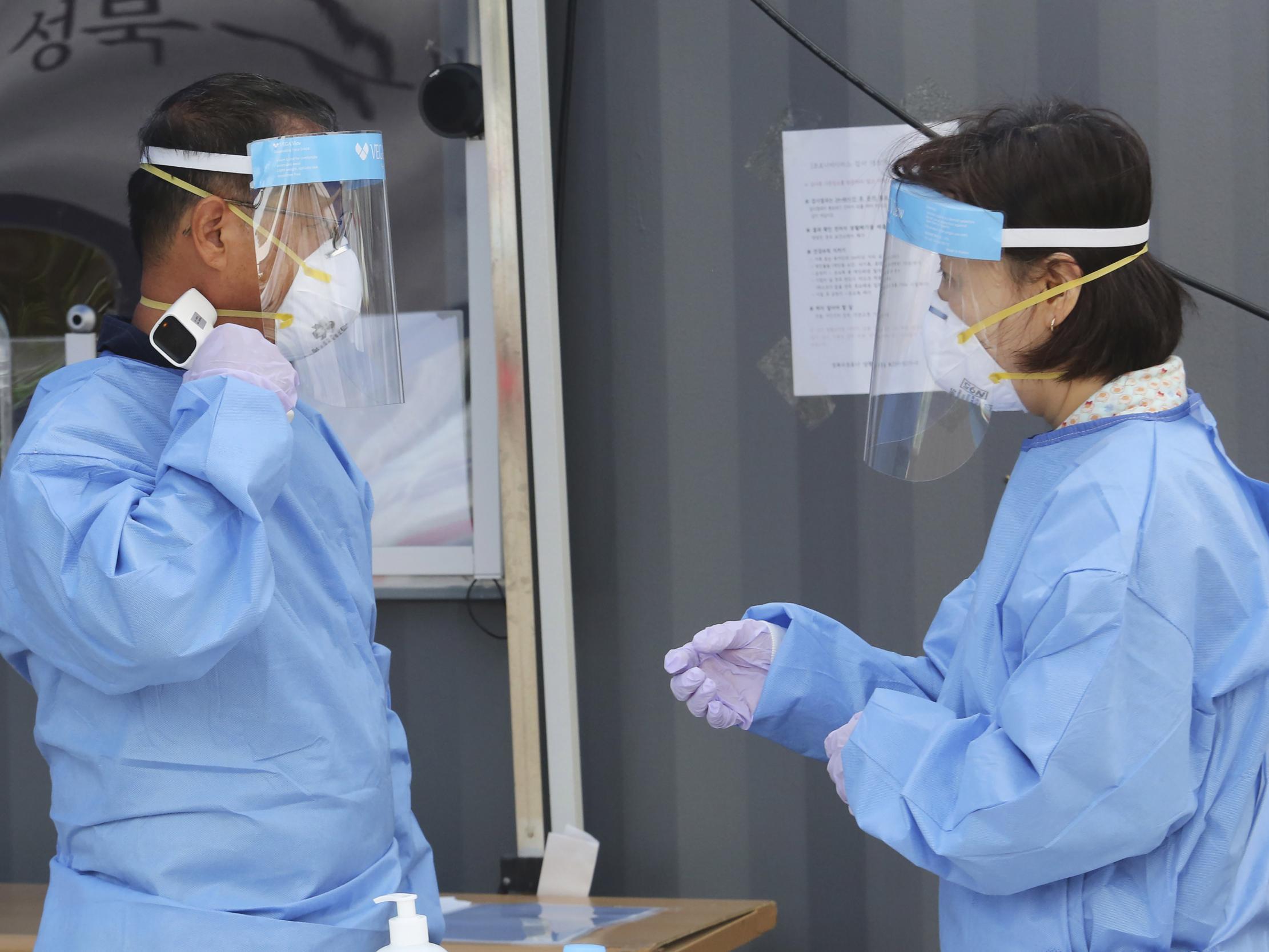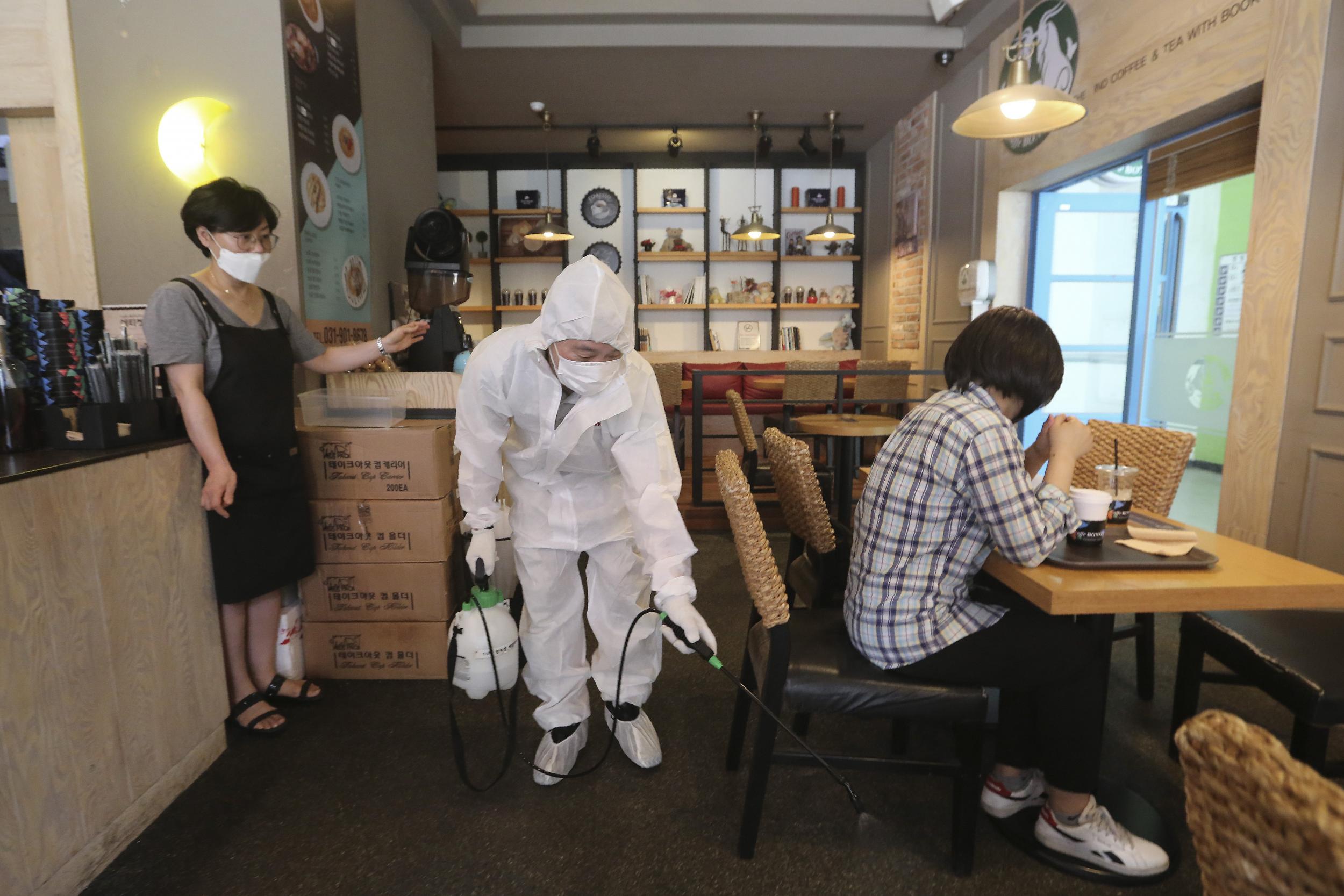Coronavirus: South Korea reports highest single-day of new virus cases in months
Majority of schools now shut in capital Seoul

Your support helps us to tell the story
This election is still a dead heat, according to most polls. In a fight with such wafer-thin margins, we need reporters on the ground talking to the people Trump and Harris are courting. Your support allows us to keep sending journalists to the story.
The Independent is trusted by 27 million Americans from across the entire political spectrum every month. Unlike many other quality news outlets, we choose not to lock you out of our reporting and analysis with paywalls. But quality journalism must still be paid for.
Help us keep bring these critical stories to light. Your support makes all the difference.
South Korea reported 441 new cases of the coronavirus, its highest single-day total in months, making lockdown-like restrictions look inevitable as transmissions slip out of control.
The country has added nearly 4,000 infections to its caseload while reporting triple-digit daily jumps in each of the past 14 days, prompting health experts to warn about hospitals possibly running out of capacity.
The 441 cases reported on Thursday was the biggest daily increase since the 483 reported on 7 March. South Korea’s Centres for Disease Control and Prevention said 315 of the new cases were from the Seoul metropolitan area, home to half of the country’s 51 million people, where health workers have struggled to track infections linked to various sources, including churches, restaurants, schools and workers.
The National Assembly in Seoul was shut down and more than a dozen ruling party lawmakers were forced to isolate on Thursday following a positive test of a journalist who covered a ruling party leaders’ meeting.
Infections were also reported in major cities and provincial towns around the country, including Gwangju, Busan, Daejeon and Daegu, a southeastern city that was the epicentre of a massive outbreak in late February and March that was stabilised by April.
Health officials have described the outbreak over the past two weeks as the country’s biggest crisis since the emergence of Covid-19. While the outbreak in the Daegu region was mostly tied to a single church congregation, health workers are having more difficulty tracking transmissions in the much more populated capital area where clusters have been popping up from various places.
After resisting such steps for months out of economic concerns, the country has stepped up social distancing restrictions nationwide, banning large gatherings, shutting churches and nightspots, removing fans from professional sports and shifting most schools back to remote learning.
There are views that such measures aren’t enough. Heath officials have lamented that people are continuing to venture out in the public, saying that transportation activity in the Seoul area declined by only 20 per cent in the past weekend.

If the viral spread doesn’t slow, health authorities have said they will consider elevating social distancing measures to the strongest “Level 3”, which could include banning gatherings of more than 10 people and advising private companies to have their employees work from home.
Such steps, designed to allow for only essential economic and social activities, may significantly hurt a weak economy, officials say.
South Korea’s central bank on Thursday lowered its growth outlook for the national economy this year, predicting it to shrink by 1.3 per cent. The country’s economy last posted a contraction in 1998 when it was in the midst of a crippling foreign currency crisis.
AP
Subscribe to Independent Premium to bookmark this article
Want to bookmark your favourite articles and stories to read or reference later? Start your Independent Premium subscription today.
Join our commenting forum
Join thought-provoking conversations, follow other Independent readers and see their replies
Comments